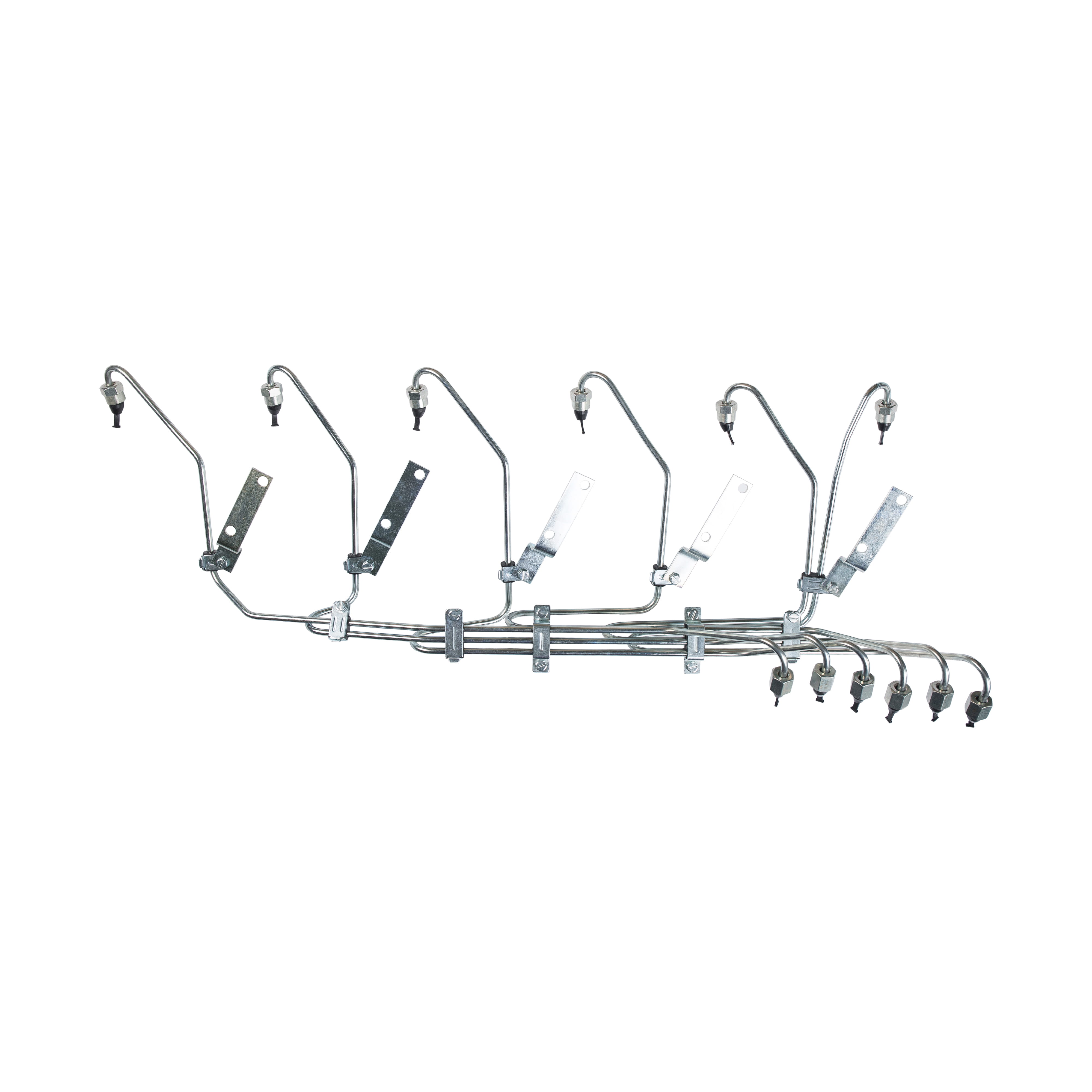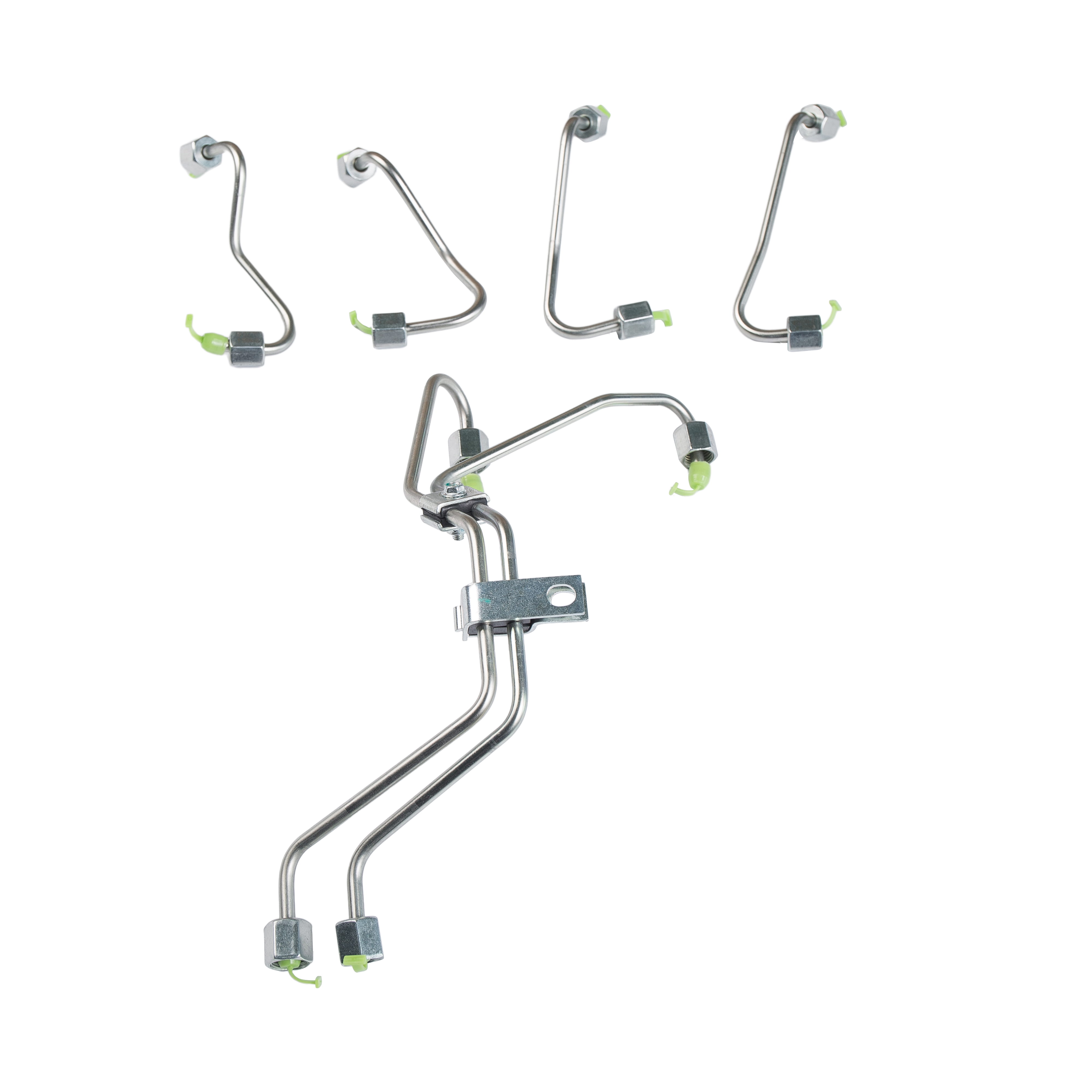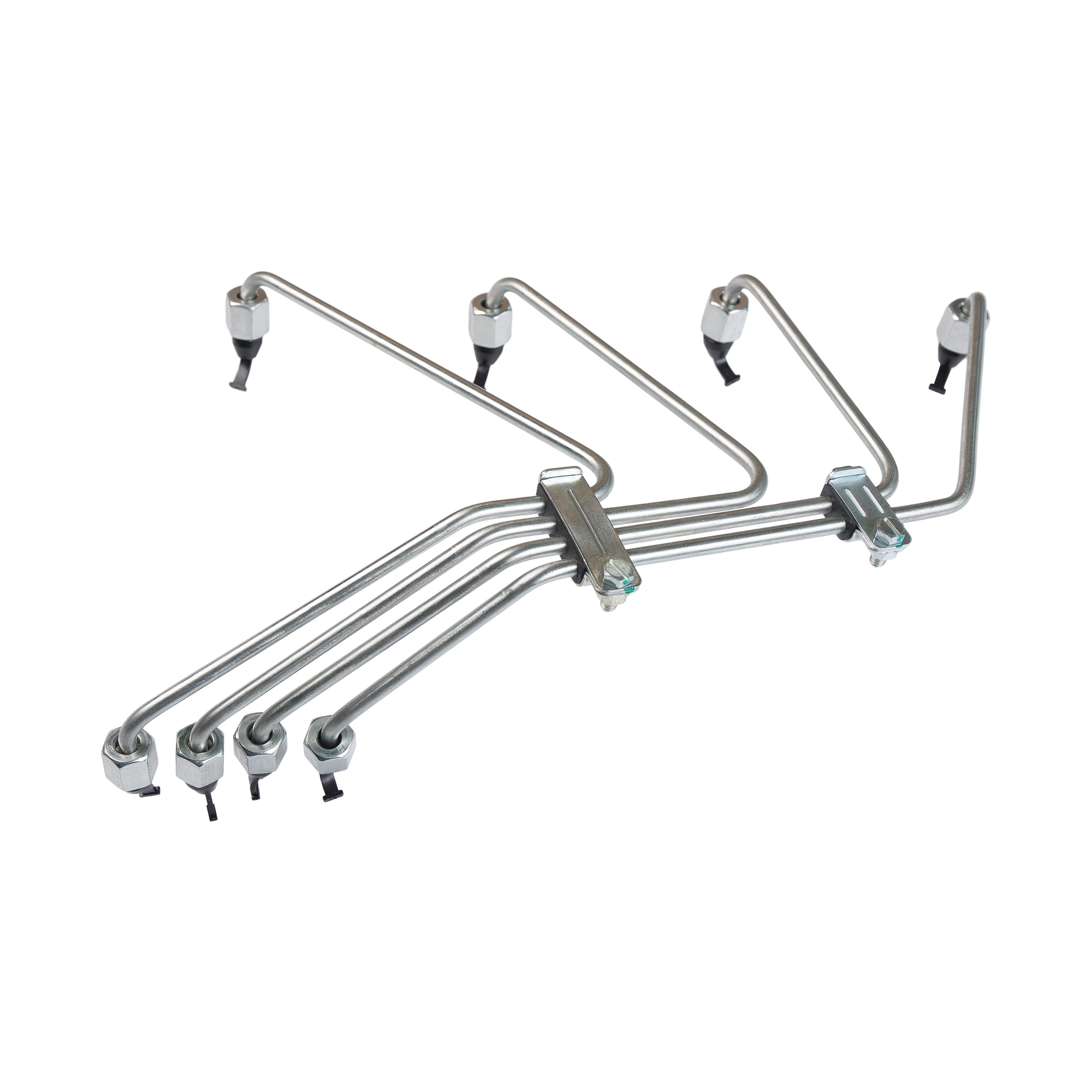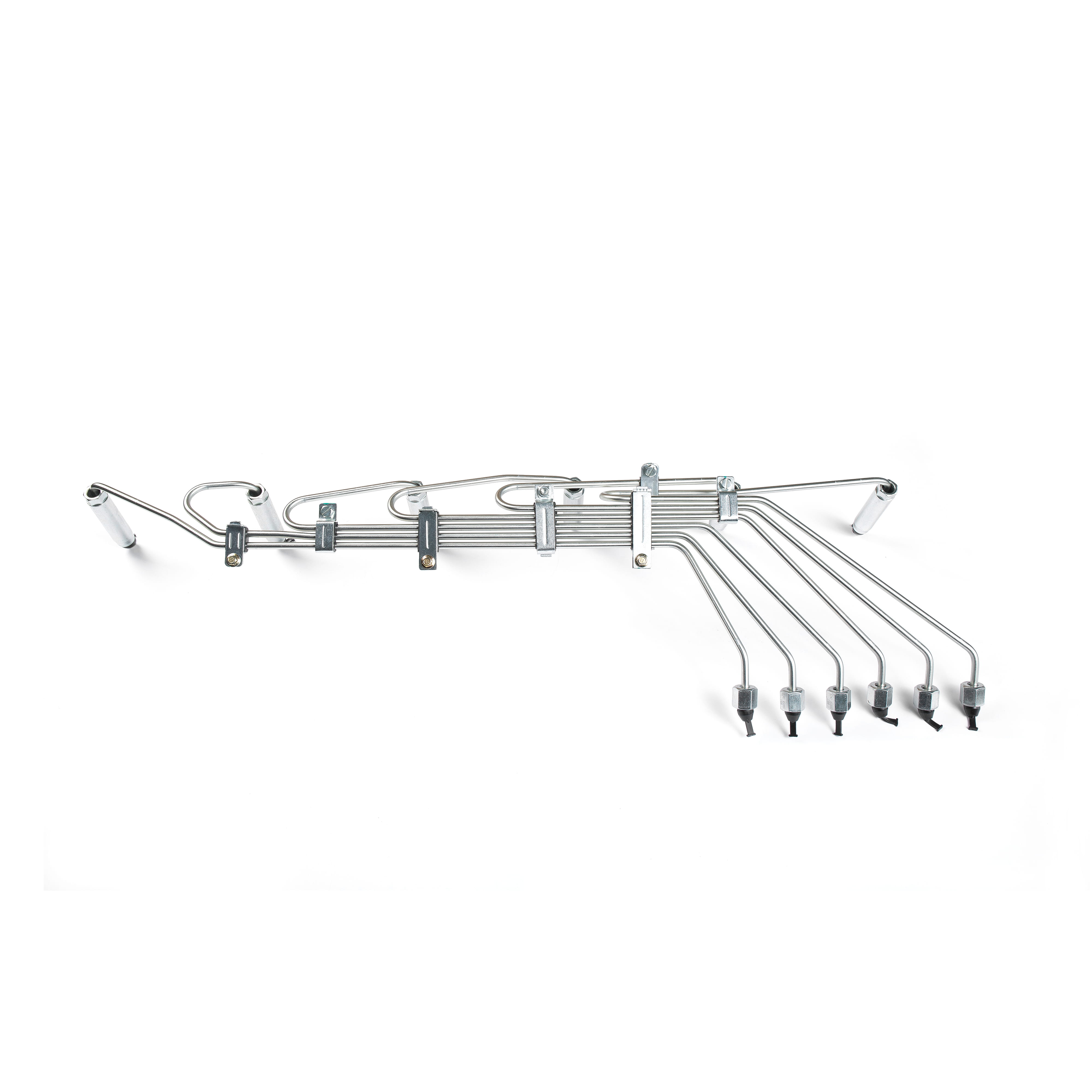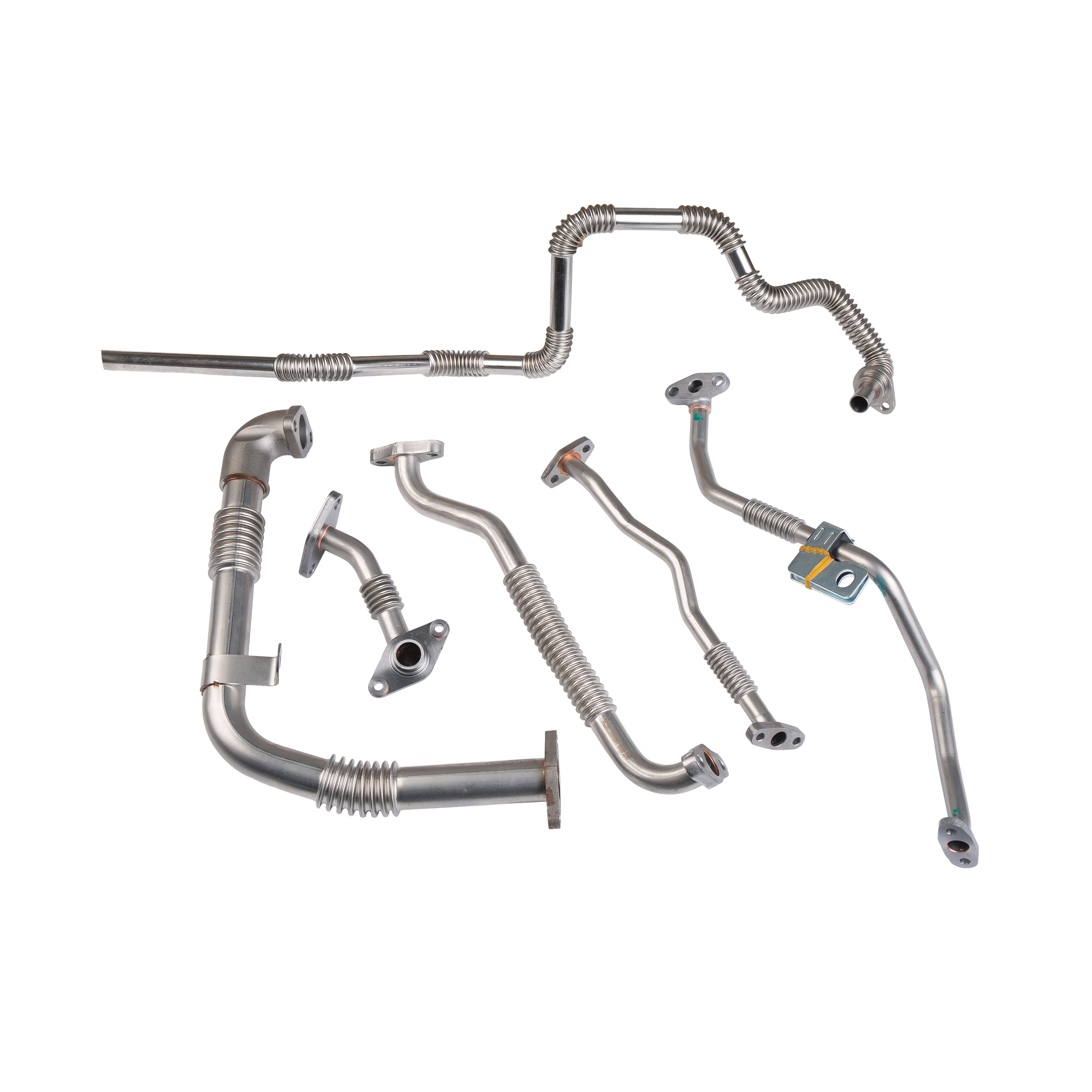When it comes to engine components, compatibility is key — especially when selecting parts like low-pressure oil pipes , which play a vital role in the lubrication system. One common question among mechanics, car owners, and aftermarket part buyers is: Can this low-pressure oil pipe be used in gasoline engines?
The short answer is yes — but with certain considerations .
Understanding the Role of a Low-Pressure Oil Pipe
In an internal combustion engine, the oil circulation system consists of two main pressure zones: high-pressure and low-pressure circuits. The low-pressure oil pipe typically carries oil from the oil pan or filter to the oil pump or other components that require pre-lubrication before reaching the high-pressure stages.
These pipes are not subjected to extreme pressures like their high-pressure counterparts, but they must still withstand consistent flow, temperature variations, and exposure to engine oils.
Compatibility with Gasoline Engines
Gasoline engines, whether found in passenger cars, motorcycles, or light-duty vehicles, operate under different conditions compared to diesel engines. They generally produce less torque and run at higher RPMs, but their oil systems function on similar principles.
A low-pressure oil pipe designed for standard automotive use can absolutely be used in gasoline engines , provided:
It's made from compatible materials (e.g., heat-resistant rubber, reinforced plastic, or metal alloys).
Its dimensions match the vehicle’s specifications , including diameter, length, and connection types.
It meets OEM standards or equivalent performance criteria (such as resistance to oil degradation, vibration, and thermal expansion).
Many low-pressure oil pipes are engineered to work across both gasoline and diesel platforms , as long as they are installed in the correct section of the engine’s oil circuit.
Performance Considerations in Gasoline Applications
While the basic function remains the same, there are a few factors to consider when using a low-pressure oil pipe in a gasoline engine :
Temperature Resistance : Gasoline engines may run at slightly lower temperatures than diesels, but under heavy load or in turbocharged applications, oil temperatures can rise significantly. The pipe must resist softening or cracking under such conditions.
Oil Compatibility : Gasoline engine oils often contain different additives than diesel oils. The material of the pipe should be resistant to swelling or chemical breakdown caused by these formulations.
Vibration and Movement : Gasoline engines tend to vibrate more due to higher RPMs. Flexible yet durable materials (like reinforced rubber) help absorb these vibrations and prevent premature failure.
Installation Fitment : Even if the pipe is technically suitable, improper installation — such as incorrect routing or tight bends — can lead to leaks or accelerated wear.
Benefits of Using the Right Low-Pressure Oil Pipe in Gasoline Engines
Using a properly selected low-pressure oil pipe in a gasoline engine offers several advantages:
Improved Lubrication Efficiency : Ensures smooth oil flow to critical components, reducing wear and extending engine life.
Reduced Leak Risk : Properly fitted and durable pipes minimize the chance of oil seepage or failure.
Cost-Effective Replacement : Compared to custom or OEM-specific parts, generic low-pressure oil pipes can offer a budget-friendly alternative without compromising safety or performance.
Yes, a low-pressure oil pipe can be used in gasoline engines , as long as it is compatible in terms of material, size, and design specifications. These pipes are essential for maintaining proper oil circulation and ensuring the engine runs smoothly and efficiently.
Before purchasing or installing, always verify that the product is suited for your specific engine type and model. If in doubt, consult your vehicle manual or seek advice from a qualified mechanic or supplier.
Choosing the right low-pressure oil pipe is not just about fitting — it’s about supporting the long-term health and performance of your gasoline engine.

 English
English Español
Español русский
русский